Common Cold Treatment: Top 7 Tips To Help Symptoms
Article at a glance
The common cold is an upper respiratory tract infection that causes symptoms such as a sore throat, nasal congestion, nasal discharge, coughing, headache, and more.
There are over 200 cold viruses that can make us sick, but the most common cause of the common cold is rhinovirus.
There are various cold remedies such as taking over-the-counter medicines and pain relievers as well as practicing proper self-care.
The common cold is rarely a medical emergency and usually clears up in about a week or two.
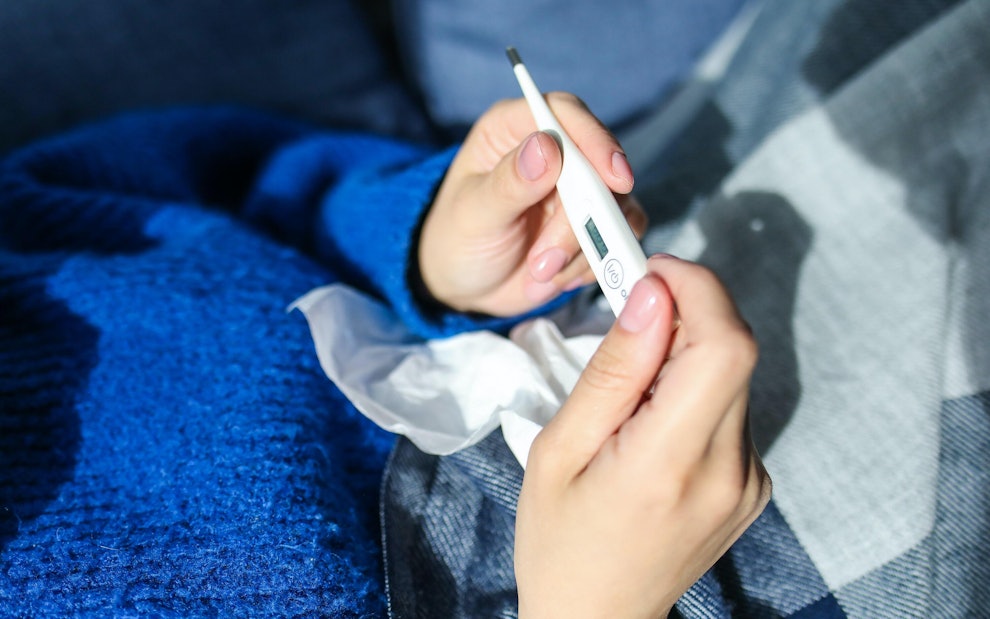
The common cold consists of mild upper respiratory infections, which includes the nose and the throat. While colds are the most common in the winter and the spring, you can still become infected at any time of the year. Most adults get an average of two to three colds per year.
The common cold spreads easily from person to person, either through the air or through close personal contact. Common cold viruses can also live on surfaces and can spread after touching the surface followed by your eyes, nose, and/or mouth.
This article will discuss common cold treatments including home cold remedies, over-the-counter medications, self-care recommendations, and more.

What Is The Common Cold?
The common cold is a mild infection of the upper respiratory tract (including the nose and the throat). There are more than 200 different types of viruses that can cause the common cold, with rhinovirus being the most common cold virus.
The viruses that trigger the common cold are incredibly contagious, spreading via the air or close personal contact. This is why it is important to stay home if you’re not feeling well. Doing so can help prevent spreading colds to others.
Common Cold Symptoms
The symptoms of a cold include:
Sneezing
Runny nose
Stuffy nose (nasal congestion)
Sore throat
Coughing
Headache
Fever (uncommon)
Symptoms can last anywhere from 10 to 14 days, and usually begin a few days before infection.
Common Cold Risk Factors
There are a number of ways you can be put at risk of getting a cold. Certain risk factors include:
Being in close contact with someone who is sick with a cold.
Living through colder seasons such as fall and winter because people are inside more often, making viruses more transmissible. As well, cold and drier weather can weaken immune system resistance to viruses.
Being an infant or child whose immune system is still developing.
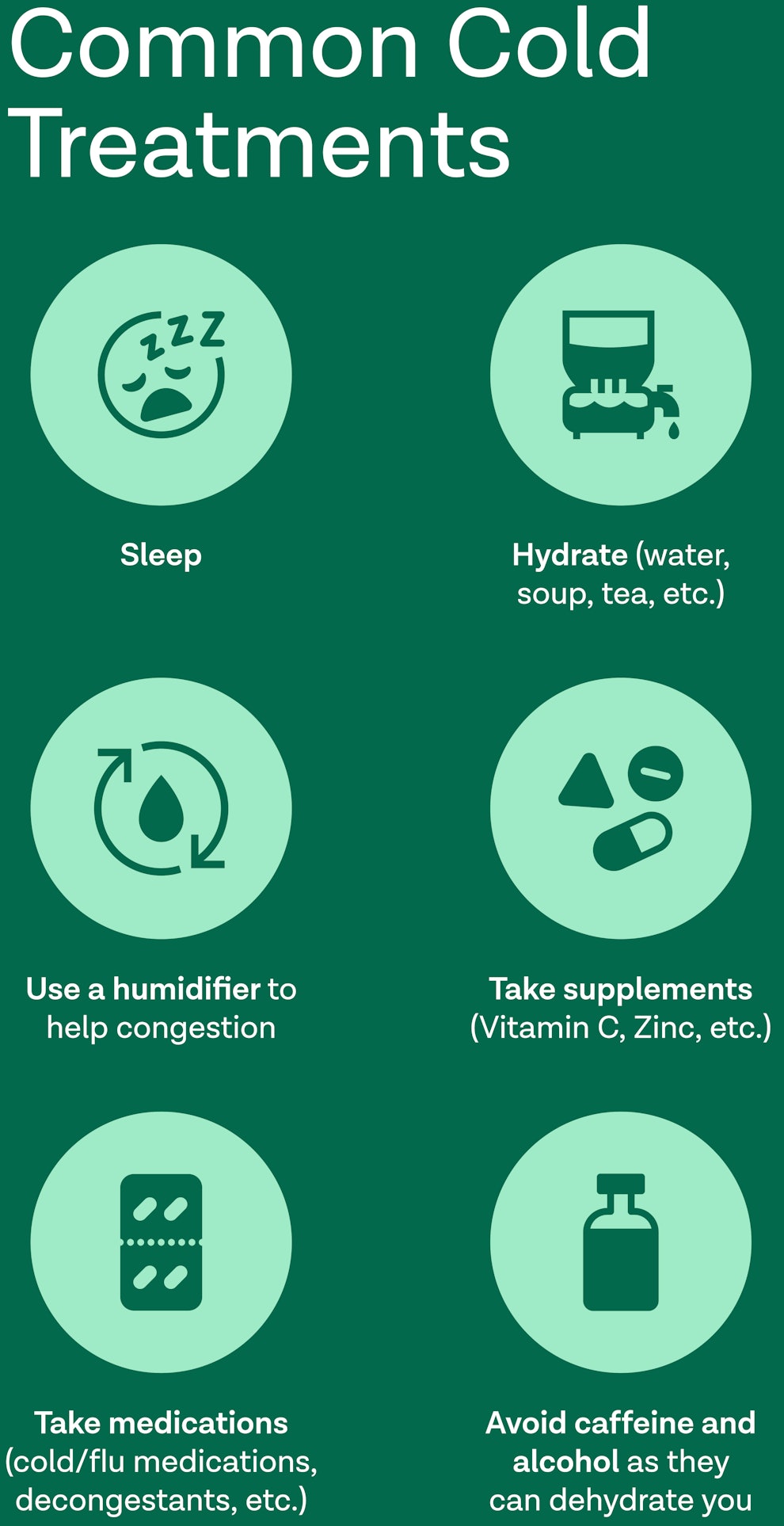
How Is The Common Cold Treated?
There are numerous ways to treat the common cold and the symptoms that come with it.
Get Enough Rest
Rest is an imperative component of recovering from a cold. This can mean taking time off work, getting to bed earlier, and sleeping in later.
Drink Plenty Of Fluids
Staying hydrated is an important part of getting better from a cold. In addition to drinking water, other good sources of hydration include sports drinks and juice. Warm liquids such as warm water with a slice of lemon or tea can also be very soothing and help with cold symptoms.
Use A Room Humidifier
A room humidifier or a cool mist vaporizer keeps your environment moist which can help ease common cold symptoms such as irritated, dry nostrils and congestion.
Take Supplements
Vitamin c and zinc supplements can be helpful in boosting immune function and helping kick the common cold faster. However, research is mixed on the true efficacy of vitamin c and zinc supplements in common cold treatment.
It is also important to note that supplements such as vitamin c will have no impact on cold symptoms once they appear. Taken prior to getting sick can help reduce the duration of symptoms, however.
Moisturize Nasal Passages
Nasal passages can become irritated and dry from blowing your nose. Keep the nostrils moisturized by using saline nasal drops or a saline nasal spray.
Avoid Caffeine
It is a good idea to stay away from caffeinated drinks while sick with the common cold because drinks, such as coffee, can dehydrate you over time.
Limit Alcohol
In addition to avoiding caffeinated drinks, skipping alcoholic beverages is important to help kick the common cold. Similar to caffeine, alcohol can dehydrate you and make getting better more difficult.
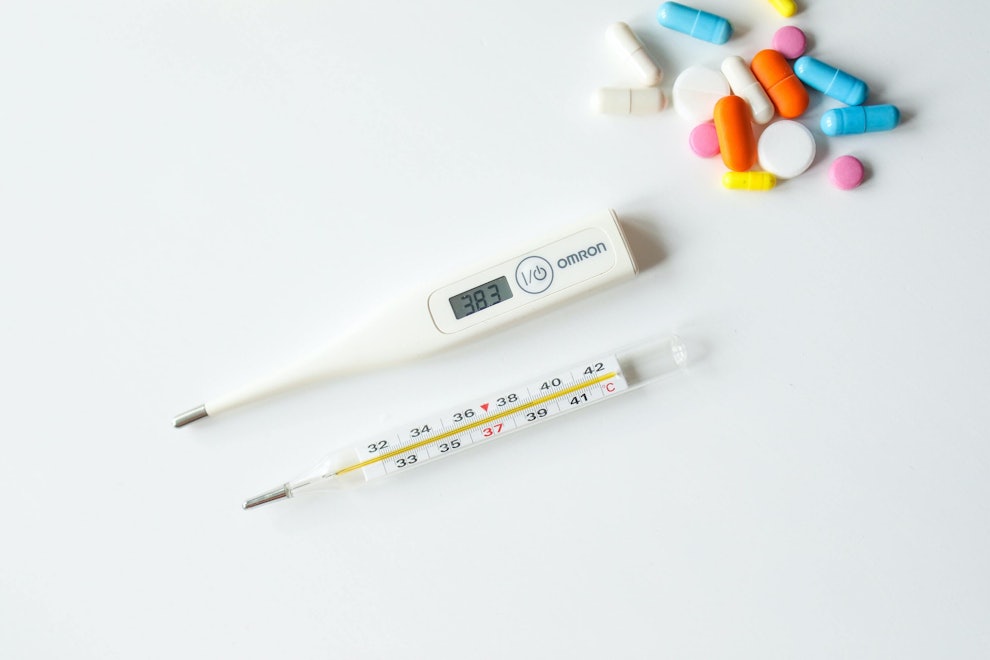
What Types Of Common Cold Medications Are There?
There are various over-the-counter (OTC) cough and cold medicines available that can help alleviate cold symptoms such as muscle aches, a sore throat, and more. Some common OTC cold medicines are listed below.
Note: Children should use child OTC cold medicine only in order to get the proper dose for them. As well, children younger than two years of age should not take acetaminophen.
Cough Suppressants
A cough suppressant can help diminish coughing. This is especially helpful at night since coughs can keep you awake and prevent you from getting enough sleep or quality rest. Examples of cough suppressants include dextromethorphan (Robitussin and Vicks DayQuil Cough).
Medicated lozenges can help to soothe a sore throat and mitigate coughing as well.
Pain Relievers
Pain relievers include OTC medications such as acetaminophen (Tylenol), NSAIDs such as ibuprofen (Advil), and more. These medicines can help relieve muscle aches, headaches, sore throats, and other painful symptoms of a cold.
Nasal Decongestants
Nasal decongestants, such as decongestant nasal sprays, can help relieve nasal congestion and other nasal symptoms. Other options for nasal decongestants include pseudoephedrine (Contac Cold 12 Hour and Sudafed) and phenylephrine (Sudafed PE).
Expectorants such as Guaifenesin (Mucinex) can also help thin and loosen mucus to make your cold more manageable.
Cold and Flu Medicines
Cold and flu medicines such as Nyquil and Dayquil can help ease symptoms such as muscle aches, fever, and more. Do note that many cold and flu medications contain more than one medicine within its formula, which is why it is important to read the ingredients.
Note: While it is usually safe to take more than one cold medicine at a given time, it is always important to check with your doctor or pharmacist to confirm there are no harmful drug-to-drug interactions.
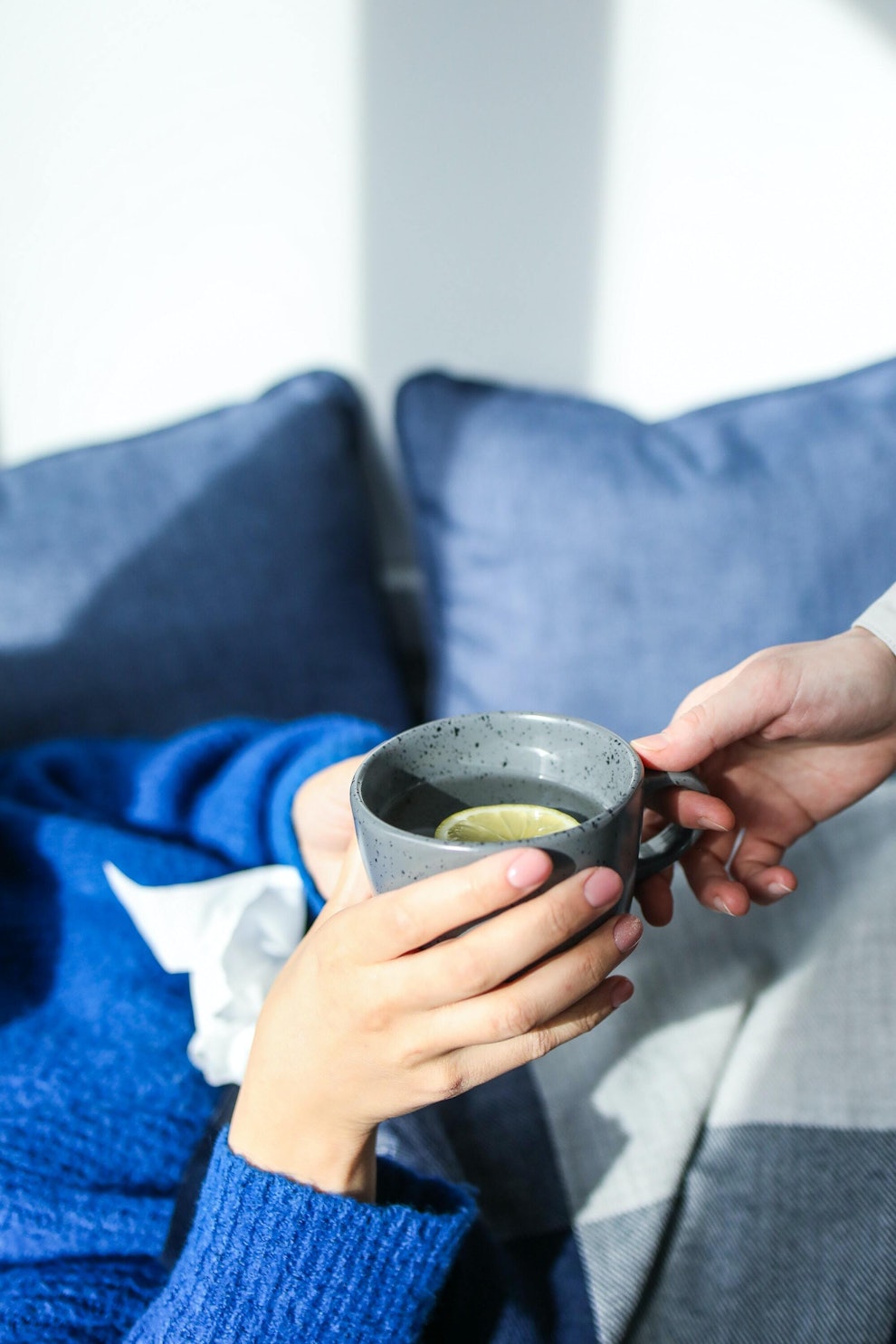
When To See A Doctor
If you are experiencing any of the following symptoms, you should seek medical attention:
Trouble breathing
Fast-paced breathing
Dehydration
A fever that lasts more than four days
Cold symptoms that persist for more than 10 days
Symptoms such as a fever or cough that initially improve but then return or become worse
Worsening of chronic health conditions
Common Cold Complications
While the common cold is rarely serious, there is still a chance that the cold virus can weaken the immune system and make you more susceptible to other types of illnesses and infectious diseases.
Some complications associated with a cold include:
Sinus infections
Ear infections
Acute bronchitis
Note: If you have health conditions such as asthma, chronic bronchitis, or emphysema, the common cold can worsen these symptoms, even after you are no longer sick.
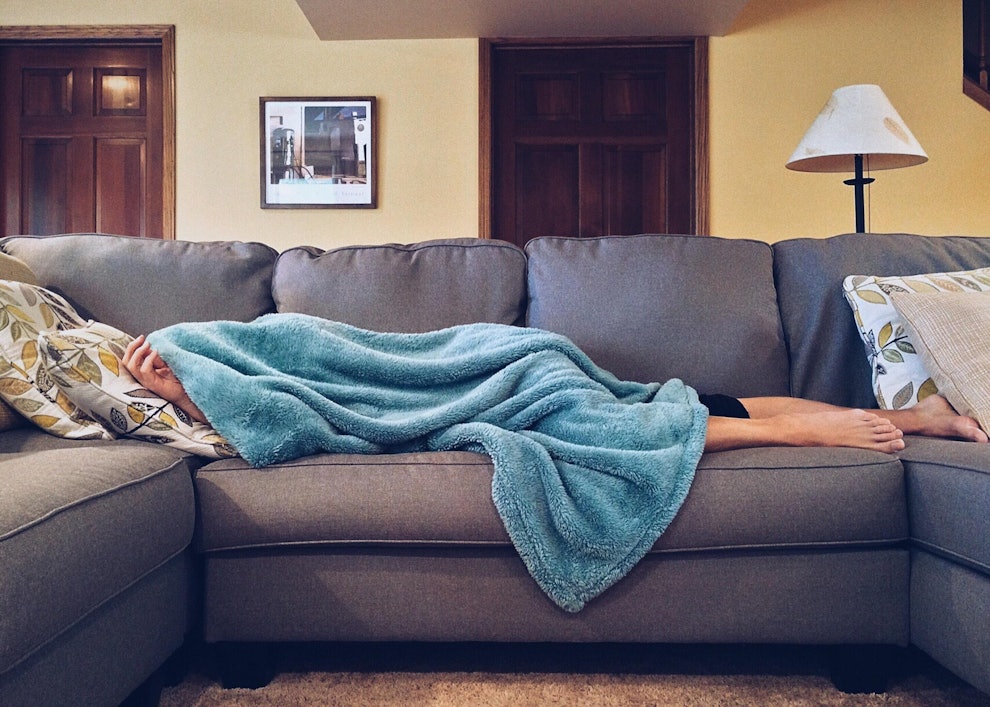
How To Prevent The Common Cold
There are a number of ways to prevent colds and keep yourself and others healthy. Read on below to learn more.
Practice Good Hand Hygiene
To prevent both catching and spreading colds, wash your hands frequently with soap and warm water. Hands should be scrubbed for at least 20 seconds. If you can’t wash your hands immediately, hand sanitizer with at least 60% alcohol is a good temporary solution to keep germs at bay.
Avoid Those Who Are Sick
If you know someone who is ill or feels like they are coming down with something, do your best to reschedule plans and stay clear until they are feeling better and are no longer contagious.
Clean or Disinfect Frequently Touched Surfaces
Cleaning and disinfecting frequently touched surfaces such as door knobs, your phone, your computer keyboard, kitchen counters, etc. can help limit your exposure to germs that cause colds. You can disinfect surfaces using Clorox wipes and other disinfectant cleaners.
Cover Coughs and Sneezes
Covering your coughs and sneezes with your arm or elbow can help stop the spread of the common cold, flu, and other viruses.
FAQ
What is the difference between the common cold and the flu?
The common cold and the flu are both illnesses that cause similar symptoms. However, the common cold can be caused by over 200 different types of viruses while the flu is caused by the influenza virus. Learn more about the flu vaccine for adults here.
What is the difference between COVID and the common cold?
COVID-19 and the common cold are both caused by viral infections, though different types. The common cold can be caused by over 200 different types of viruses while COVID is caused by SARS-CoV-2. Learn more about the COVID-19 vaccine for older adults here.
Do antibiotics help treat the common cold?
No. Antibiotics will not help with the treatment of the common cold because antibiotics are used to treat bacterial infections, not viruses.
Can chicken soup cure the common cold?
No, chicken soup cannot cure the common cold. In fact, there is no cure for the common cold at all. However, chicken soup and other remedies and treatments can help ease common cold symptoms.
What are the four stages of a cold?
The four stages of the common cold are the incubation period, the onset of symptoms, remission, and then recovery.
How long is a cold contagious for?
If you’re sick with a cold, you can be contagious for up to two weeks. That said, the cold can even spread prior to the onset of symptoms. However, cold symptoms are usually worse during the first two to three days of illness, and this is when you are most likely to spread the sickness to others.
Sources
https://familydoctor.org/condition/colds-and-the-flu/?adfree=true
https://www.lung.org/lung-health-diseases/lung-disease-lookup/facts-about-the-common-cold
https://my.clevelandclinic.org/health/diseases/12342-common-cold
https://www.hopkinsmedicine.org/health/conditions-and-diseases/winter-illness-guide
Become a patient
Experience the Oak Street Health difference, and see what it’s like to be treated by a care team who are experts at caring for older adults.




